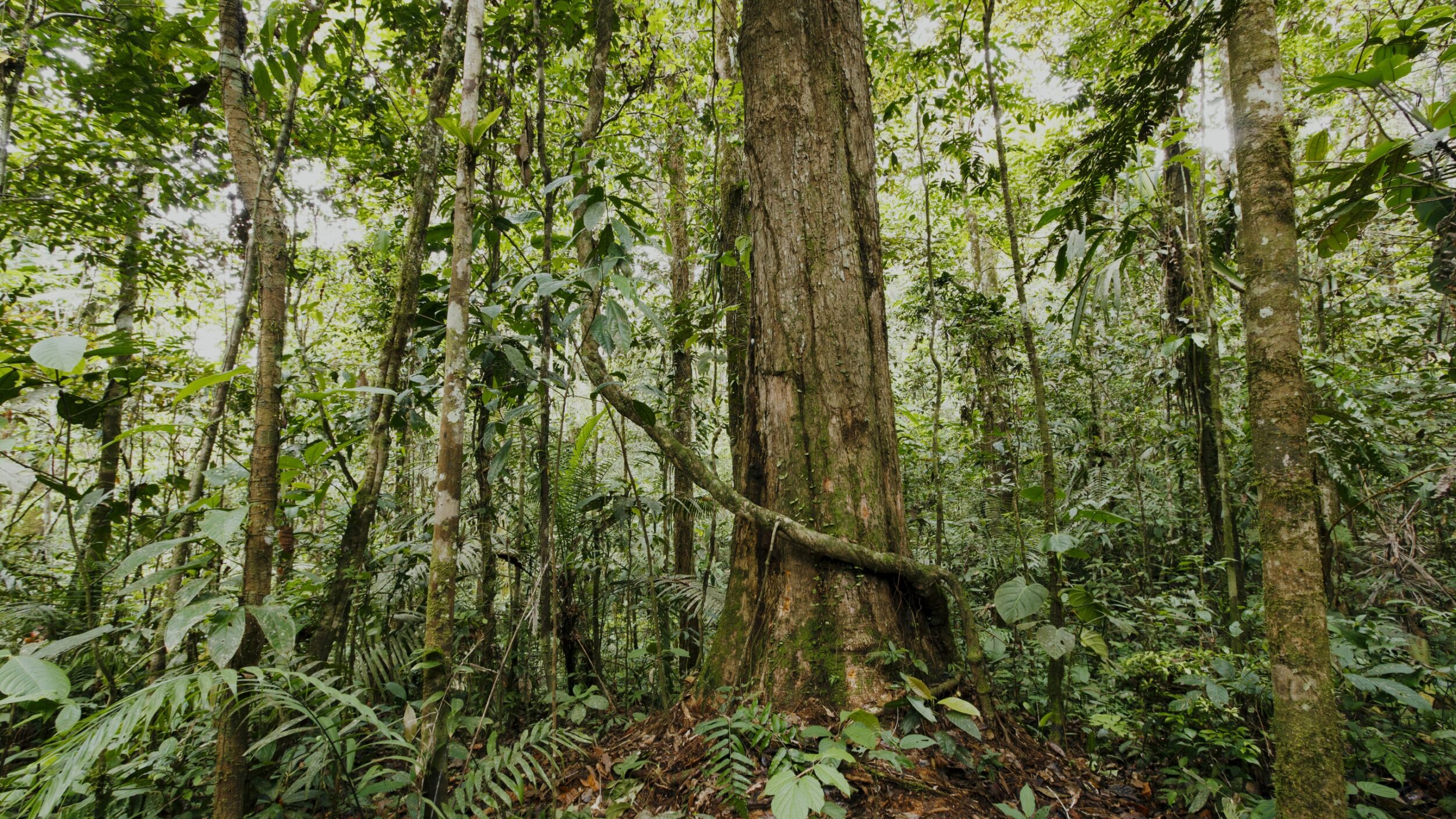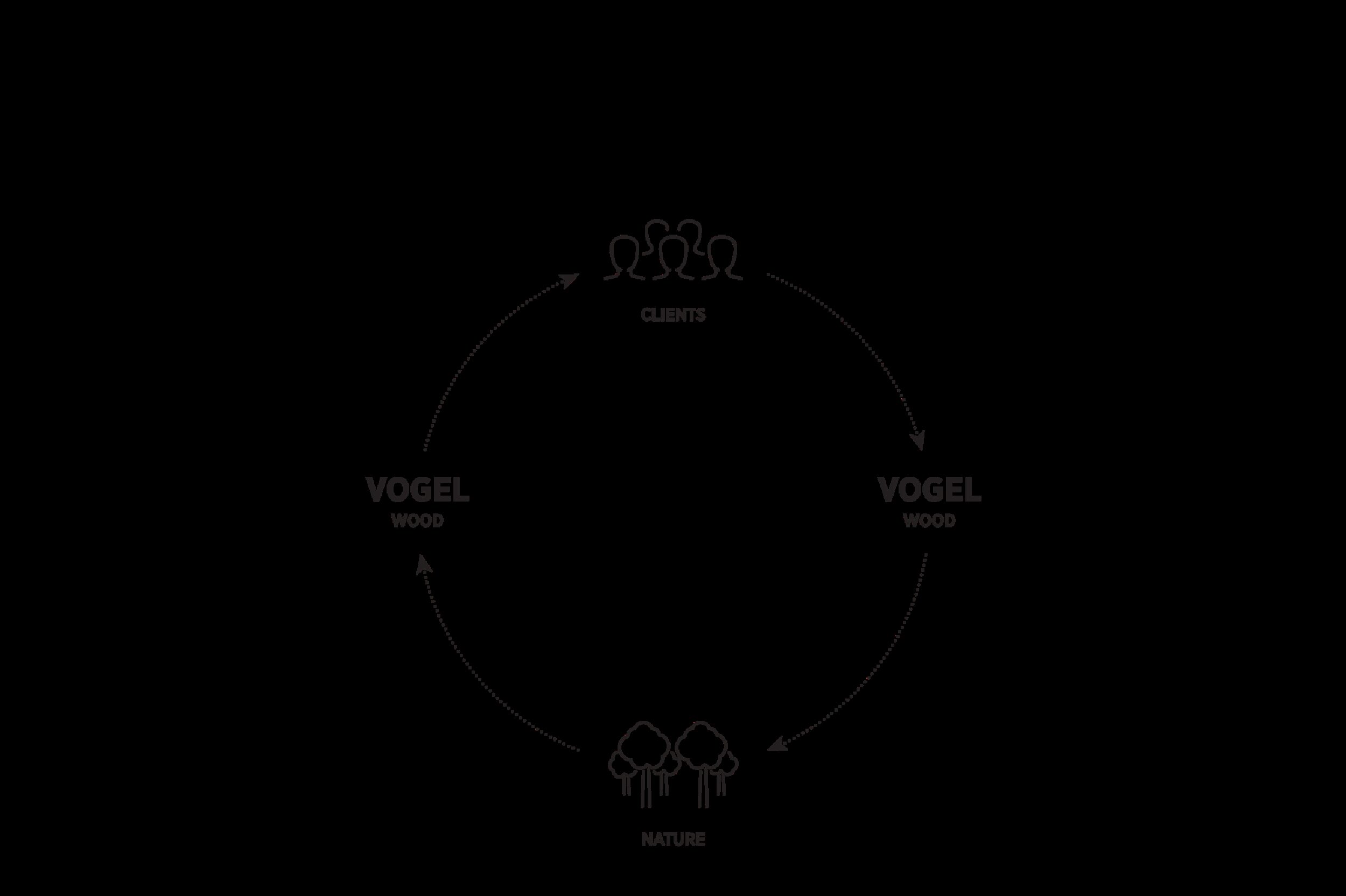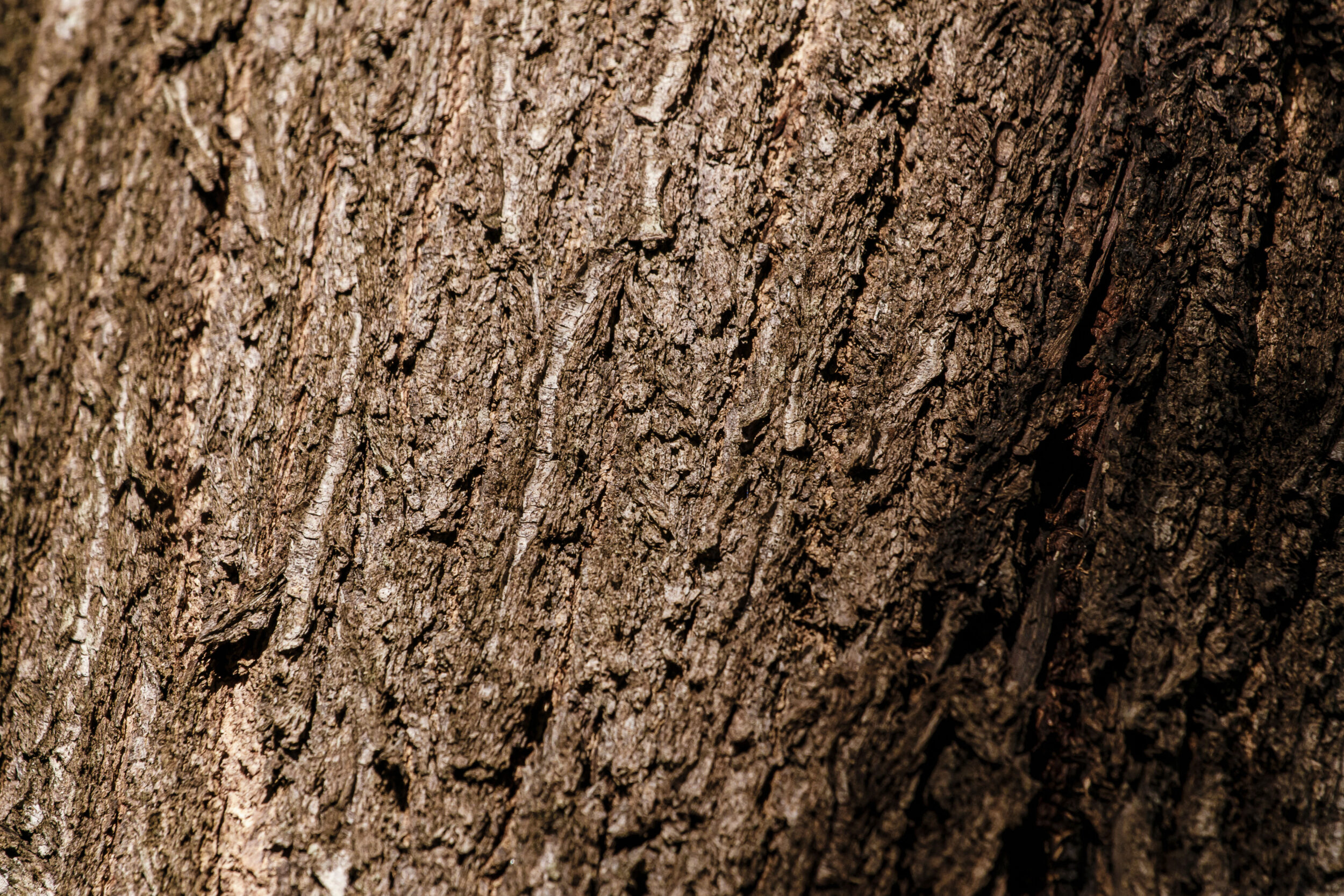The value of wood
Nature is our natural ally. We rely on each other, having collaborated closely for decades. In fact, we are two sides of the same coin. She nurtures us, while we take care of her.

Our dependence on nature is obvious. After all, she is that tremendous force that produces all the wood we market. Her generosity in this respect is boundless, as she generates it in vast quantities and entirely free of charge.
For a long time, we believed her resources to be inexhaustible. But now we understand this is not the case. If we ignore this reality and do not take a thoughtful approach to timber harvesting, wood could become a scarce commodity, rendering the earth an uninhabitable place to live.
That’s where Vogel enters the scene. We are all too aware that in order to enjoy Nature’s wood-creating powers indefinitely, we need to care for her. We must manage her responsibly and harvest wood in such a way that the diversity and natural regenerative ability of the forests are respected, even enhanced. With the right attitude and scientific advances in sustainable forest management, achieving this is entirely possible today. How does it work in practice?
When a local business purchases a concession for a piece of forest, a specialized forest engineer analyzes the plot and develops a sustainable forest management plan. This plan details how much of which wood species can be harvested to ensure the forest can organically renew itself. Furthermore, an independent third-party verifier annually checks whether the concession holder is strictly adhering to the forest management plan. And Vogel systematically visits its suppliers and their concessions to ensure all operations proceed sustainably.
In this way, we look after Nature and keep her thriving, while she continues to exercise her unfathomable creative powers to provide us with what we need. It is a powerful alliance that benefits both parties and reinforces one another.

Guarantee of high-quality, legal and sustainable wood
Working with Vogel is working with absolute trust. Based on the certainty that you get top-quality wood that is legally and sustainably harvested.
We achieve this thanks to our in-depth knowledge of the timber market in South America, Africa, and Asia, and our extensive network of local suppliers. We regularly visit them to monitor the working conditions on-site and make adjustments where necessary.
If there is a claim against one of our suppliers, we investigate it thoroughly. And all deliveries are monitored by an independent third-party verifier who, furthermore, carries out annual forest audits to check whether the suppliers are adhering to their Forest Management Plan.
As you can see, the entire chain from forest management to delivery to your warehouse is meticulously inspected to guarantee the quality, sustainability, and legality of the wood.

We, humans, have a special, privileged relationship with wood. Since the beginning of time, wood has been our favourite source material. We've used it for hundreds of thousands of years to build a roof over our heads and to manufacture furniture, tools, and artwork.
Over time, humans have developed new materials, each with their specific properties. And yet, wood remains man’s preferred source material and is even gaining popularity.
Why?
Positive CO2 impact
The production of alternatives to wood such as concrete (tiles), steel, and aluminium creates tons of CO2, giving these materials a negative CO2 footprint. That does not apply to wood, as trees absorb CO2 during their life cycle and store it until the wood is burned. Conclusion: using wood as a building material has a positive impact on CO2 levels in our atmosphere.
Biodegradable
Unlike plastic, for example, wood is biodegradable. If it ends up in nature, it does not harm fauna and flora, but instead provides important food sources for numerous organisms.
Recyclable
Wood is relatively easy and recyclable. Class 1 durability hardwood boards, for instance, can be retrieved after 40 years, planed and reused for new purposes. It gives the wood a second life. At the very end of its lifecycle, it can be shredded and the chips can be used as biomass, for example.
Happiness enhancer
Wood is a natural material. Designed and manufactured by the greatest creative force on earth, nature. Just like a walk in the forest, the feeling of being surrounded by wood connects us with nature and improves the quality of our life (see the concept of biophilia: humans have a natural desire to seek contact with nature and the natural; this has a positive impact on our well-being and even happiness).
